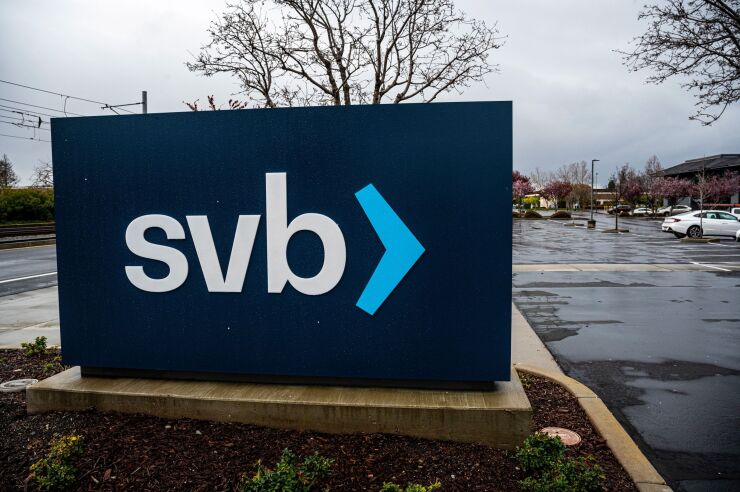
WASHINGTON — The former owner of the now defunct Silicon Valley Bank — SVB Financial Group — got the green light from a federal judge to conclude its bankruptcy proceedings, but a significant level of seized deposits remain in limbo.
A key issue in the case has been whether the FDIC holds defensive setoff rights, which protect creditors like the FDIC in bankruptcy from having to pay their debts in full to a debtor while awaiting a prorated share of the debtor's debt. Setoff rights aim to prevent one party from paying another when the other party also owes them money. In this case, the judge approved the reorganization plan while maintaining the FDIC's rights for future litigation concerning its setoff rights.
Judge Glenn ruled that these rights were not extinguished because section 553 of the Bankruptcy Code preserves setoff rights even in bankruptcy. However, he clarified that the bankruptcy proceedings did not determine the merits of these setoff rights, which should be addressed by the district courts overseeing related disputes.
The judge limited the scope of the ruling by stating that the merits of these setoff rights were not being determined in the bankruptcy proceedings and should be addressed in the relevant district courts.
"The Court concludes that the [FDIC]'s ability to assert defensive setoff rights are preserved," wrote the judge. "This Court does not take a position on the strength or propriety of the [FDIC]'s purported defensive setoff rights since that is not the question before the Court. "
The conclusion of SVB Financial's bankruptcy marks a crucial step in the company's financial recovery. However, the unresolved $1.93 billion claim against the FDIC underscores the ongoing challenges and legal complexities that lie ahead.
SVB Financial Group, which
Depending on the outcome of litigation, SVB Financial's senior bondholders — who are owed $3.3 billion — are projected to be reimbursed between 41% and 96% of what they are owed,
Throughout the bankruptcy proceedings, SVB Financial argued that the seized funds should be returned. SVB Financial Group objects to the FDIC's claim that it can offset the money owed to SVB against SVB's debts, with the company arguing that this setoff would unfairly reduce the amount of money available for its reorganization.
However, Judge Glenn sided with the FDIC, stating that this issue should be resolved in a separate court case in Northern California. The FDIC asserts that these funds are part of the receivership process and may be used to offset potential liabilities owed by SVB Financial. The agency argues that once it took over Silicon Valley Bank, it became the owner of the $1.93 billion, making SVB Financial merely a creditor with the right to claim these funds.
The court's ruling underscores the complex interplay between bankruptcy and federal receivership processes.
Judge Glenn addressed these objections, emphasizing that the FDIC's rights under federal law could not be easily overridden by the bankruptcy proceedings. This ruling ensures that the FDIC's claims and potential liabilities must be adequately considered before any funds are released.
The FDIC did not immediately respond to requests for comment.






